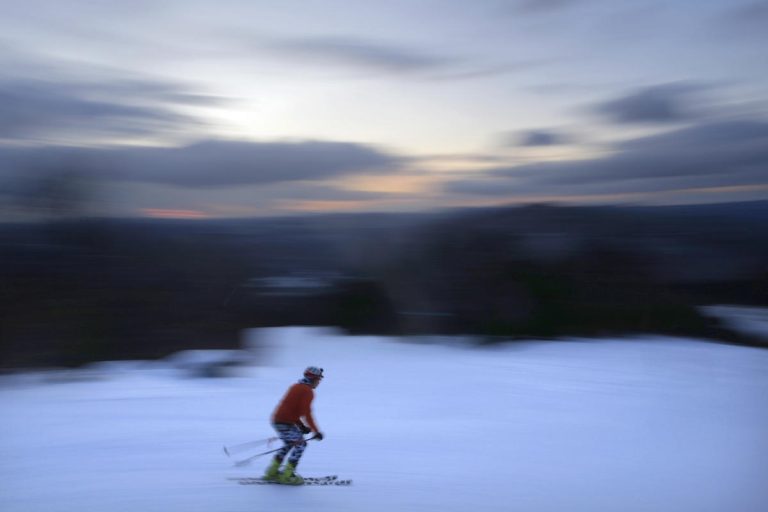DENVER (AP) — U.S. ski areas lost $5 billion from 2000 to 2019 as a result of human-caused climate change, and could lose about $1 billion annually in the 2050s depending on how much emissions fall, a study found. New.
“People may not care about the loss of species halfway around the world, or about a flood happening in another part of the world. Sports are something people care about more often,” said Daniel Scott, a scientist at the University of Waterloo and co-author of the study. “And they can see some of these changes happening.”
Warm weather has upended winter recreation across North America and Europe this year, with a 250-mile sled dog race in Maine canceled, golf courses opening in Minnesota, and snow from the previous year required to hold a sled race in Austria. Scientists say El Niño's warm, dry weather pattern coupled with global warming is to blame, and has put the threat of winter into focus.
“It's a problem now, not a problem that looks to the future,” said Auden Schindler, senior vice president of sustainability at Aspen One, a ski and hospitality company that helped fund the study, which was published in the journal Current Issues in Tourism.
It models what average ski seasons would have looked like from 2000 to 2019 in the four major U.S. markets — the Northeast, Midwest, Rocky Mountain, and Pacific West — without climate change. The basic comparison is the ski seasons from 1960 to 1979 – the period when most ski areas were operating and before significant warming trends due to human activity began. It found that the average typical season between 2000 and 2019 was 5.5 to 7.1 days shorter, even with snow making to compensate for the lack of natural snow.
Under an optimistic emissions-reduction scenario, the future of the U.S. ski industry would see seasons shorten by 14 to 33 days in the 2050s, even with snowmaking. A high emissions scenario would nearly double the number of days lost.
Countries gathered at annual climate talks in December agreed that the world needs to “transition” away from fossil fuels that are warming the planet to dangerous levels, but did not set concrete goals to do so. Last year, Earth experienced its hottest year on record, and monthly records have continued this year.
“The future of the ski industry, if that's something that matters to you, is really in our hands and will take shape over the next 10 to 15 years in terms of the policies and actions we take to reduce emissions,” Scott said.
The researchers calculated economic losses based on increased operating costs for the snow industry coupled with lost revenue for skiers. Scott called the estimates “maybe a little conservative,” noting that they don't include things like the loss of money skiers spend on goods and services in winter sports communities.
The researchers said they conducted the study in part to fill a void of good data on how much climate change is costing the ski industry. They also suggested that such data would be necessary if the industry files lawsuits against fossil fuel producers, pointing to ongoing lawsuit precedent by several Colorado communities suing oil companies ExxonMobil and Suncor Energy over the cost of adapting to the impacts of climate change.
The snow industry “can no longer fully compensate for ongoing climate changes,” the researchers wrote, and they said that “the era of peak ski seasons has likely ended in most U.S. markets.”
David Robinson, a researcher at Rutgers University and a New Jersey state climatologist, made the same point when he called the study interesting and powerful.
“It's not going to stop snowing,” said Robinson, who was not involved in the work. But “things like snowmaking won't be able to go as far as what's being done now” as the planet continues to warm.
The study does not address how skiers and snowboarders respond to lower quality snowfall, said Julianne Struve, a senior scientist at the National Snow and Ice Data Center, who was also not involved in the work. She wondered whether skier behavior would change if poor snow conditions became more frequent.
This change in a skater's behavior is known as fungibility, Scott said. If skiing is not an option or does not provide good snow conditions, will people travel to another ski area? Moving into mountain biking? Scott said he'd like to know that.
“This is another one of the things we would like to know more about, because then you can improve the modeling,” he said.
___
The Associated Press receives support from the Walton Family Foundation for coverage of water and environmental policy. AP is solely responsible for all content. For all of AP's environmental coverage, visit https://apnews.com/hub/climate-and-environment

